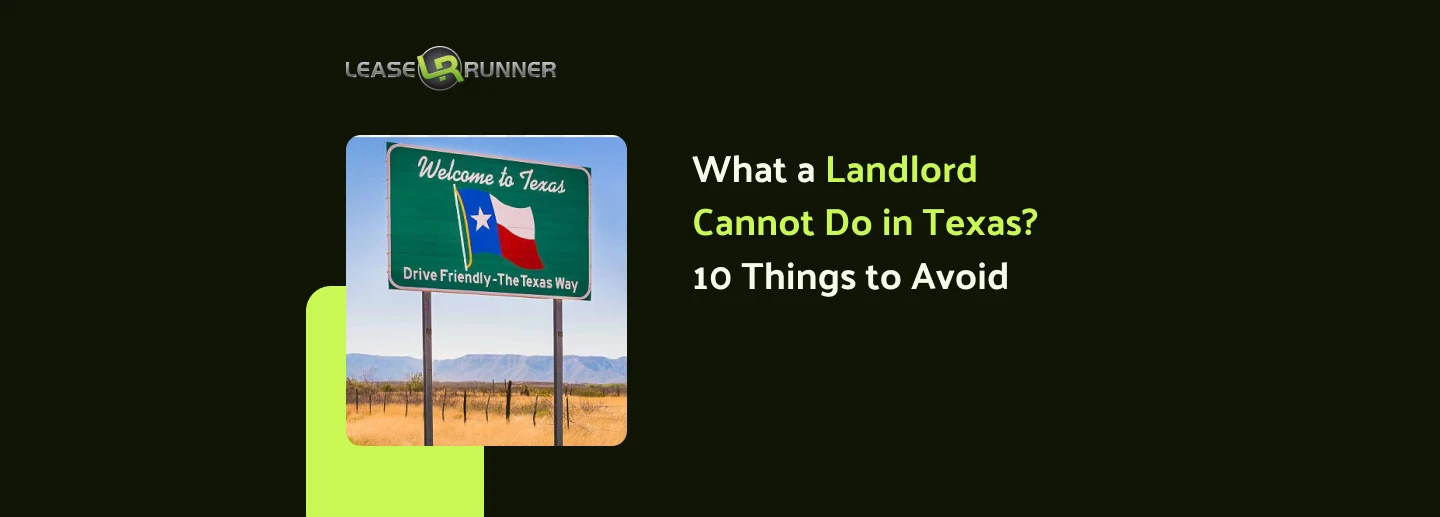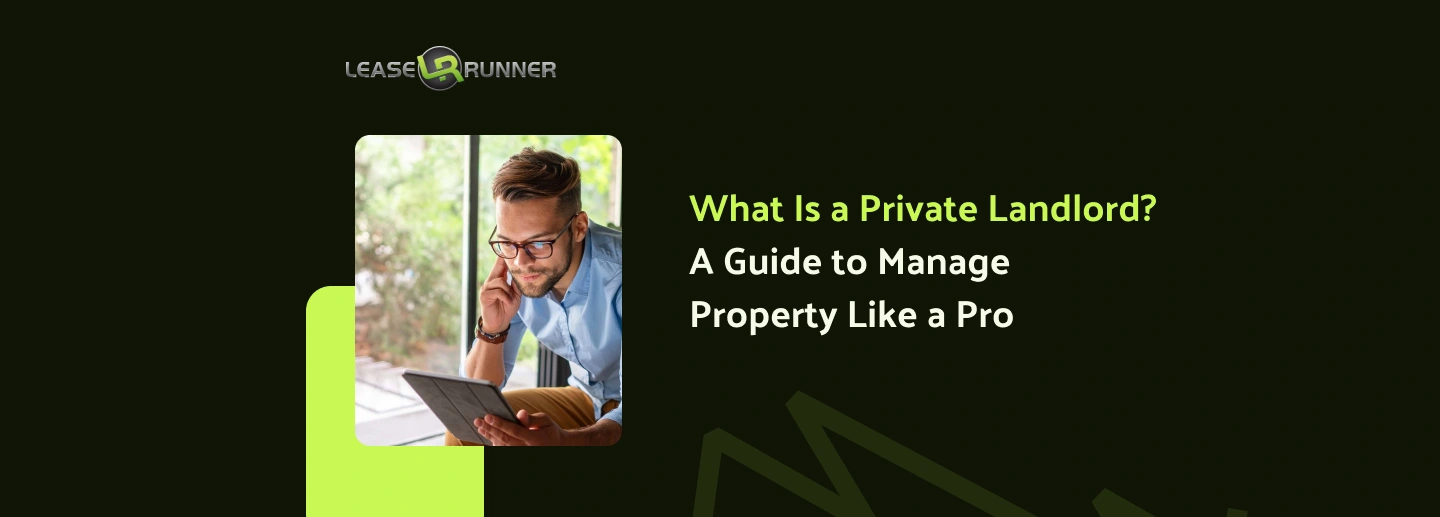Texas is known for being landlord-friendly, but even here, there are strict rules about what a landlord cannot do in Texas. State law clearly outlines prohibited actions, many of which can surprise even experienced property owners. In this guide, we’ll cover 10 key restrictions every landlord should know to stay compliant and avoid disputes.
1. Refuse to Make Essential Repairs
Reject essential repairs
Under Texas Property Code §92.052, landlords are legally obligated to address and repair any condition in the rental property that materially affects the health or safety of the tenant.
“Essential repairs” refer to problems that compromise basic living conditions. They are problems that pose a risk to a tenant’s health, safety, or ability to comfortably inhabit the property. Common examples you can see are:
- A broken HVAC system during extreme Texas summers or winters
- Plumbing leaks that lead to water damage or mold growth
- Faulty electrical systems that pose a fire hazard
- Roof damage allowing water intrusion
- Pest infestations such as rodents or cockroaches
- Broken locks or windows that compromise security
Tenants must provide proper written notice, and the landlord typically has a reasonable time (usually 7 days) to respond. Failing to make essential repairs may give tenants the renters rights in the state of Texas to terminate the lease, withhold rent in certain cases, or even pursue legal action. It's also one of the most common complaints that escalates to formal disputes, especially when documentation is lacking.
Note: A landlord cannot legally refuse or delay essential repairs once properly notified.
2. Harass or Intimidate Tenants
Landlords in Texas are strictly prohibited from harassing or intimidating tenants, whether directly or indirectly. While the term "landlord harassment Texas" might bring to mind overt physical threats or verbal abuse, the landlord-tenant law in Texas also recognizes more subtle forms of coercion.
These can include psychological pressure, retaliatory behaviors, or patterns of conduct intended to make a tenant feel unwelcome or compelled to move out. Importantly, Texas law and the federal Fair Housing Act offer strong protections against this kind of conduct.
Examples of prohibited behavior include:
- Threatening eviction without cause
- Shutting off utilities
- Changing locks
- Excessive communication intended to annoy or pressure
Even passive-aggressive behaviors, like constant unannounced visits or pressure to waive legal rights, can cross the line. These tactics are especially problematic when used after a tenant asserts their legal protections, such as requesting repairs, reporting housing violations, or organizing with other tenants.
Courts take retaliation seriously and can award damages, legal fees, and even punitive penalties against landlords found guilty of harassment. Landlords should always document interactions, respond professionally, and avoid any conduct that could be interpreted as intimidation.
3. Evict a Tenant Without Following Legal Process
Evict tenants illegally
Evictions in Texas must be conducted strictly according to legal procedures. Even when a tenant is behind on rent or has violated lease terms, landlords cannot take matters into their own hands. The only lawful way to remove a tenant is through a court-supervised process known as a forcible detainer action, handled in the local justice court.
The process begins with a written notice to vacate, usually requiring a minimum of 3 days, unless the lease specifies a different timeline. If the tenant does not move out within that window, the landlord may file an eviction case in court. After a hearing, if the judge rules in the landlord’s favor, a writ of possession may be issued. This writ allows a constable, not the landlord, to remove the tenant and their belongings.
Skipping the court process can result in penalties, tenant lawsuits, or court orders forcing the landlord to pay damages.
4. Discriminate Against Prospective or Current Tenants
Discrimination in housing is illegal at both the federal and state levels. In Texas, landlords must comply with the Federal Fair Housing Act and the Texas Fair Housing Act, which together protect tenants and applicants from unfair treatment based on race, color, religion, sex, national origin, disability, and familial status. Some cities also add further protections, such as for sexual orientation, gender identity, or source of income.
Texas also enforces these protections through the Texas Fair Housing Act, and some cities offer additional protections (e.g., for source of income or sexual orientation).
Violations can trigger investigations by HUD, the Texas Workforce Commission, or local fair housing agencies. Landlords found in violation may face lawsuits, significant fines, and mandatory training or corrective actions. Fair and consistent screening practices, along with clear documentation, are the best defenses against inadvertent discrimination.
5. Enter a Tenant’s Unit Without Proper Notice
While Texas does not mandate a specific amount of advance notice before a landlord can enter a rental unit, the landlord-tenant law in Texas does uphold the renter's rights in the state of Texas to privacy and quiet enjoyment of their home. Unauthorized or excessive entry can quickly become a legal issue, especially if it's done repeatedly or for inappropriate reasons.
Best practice, and often stated in lease agreements, is to give at least 24 hours' notice for non-emergency entries. Entry is typically allowed for:
- Repairs and maintenance
- Inspections
- Showing the unit to prospective tenants or buyers
- Emergencies (where no notice is required)
Tenants have the right to feel secure in their homes. Landlords who ignore this and enter without notice may face legal claims for harassment or breach of lease.
6. Raise the Rent Without Giving Adequate Notice
Raise the rent fee
In Texas, landlords can raise the rent, but not whenever or however they please. The rules depend on the type of lease agreement. For month-to-month leases, Texas law requires at least 30 days’ written notice before a rent increase can take effect. Attempting to raise rent without that notice is legally invalid.
For tenants under a fixed-term lease (e.g., a one-year lease), the rent cannot be increased until the lease expires, unless the lease agreement explicitly allows for mid-term increases under certain conditions (which is rare).
Importantly, landlords also cannot raise rent in retaliation. For example, after a tenant files a maintenance complaint or reports a code violation. If the timing appears suspicious, courts may view the increase as retaliatory and illegal.
7. Retaliate Against Tenants for Exercising Legal Rights
Landlord-Tenant Law in Texas strictly prohibits landlords from retaliating against tenants who engage in legally protected activities.
- Reporting code violations
- Requesting repairs
- Joining or organizing a tenant union
- Filing a complaint with a governmental agency
Retaliation can take many forms (raising rent suddenly, issuing an eviction notice, reducing services, or even changing the locks without cause). Texas Property Code §92.331 specifically outlines what counts as unlawful retaliation.
If a tenant can prove that the landlord's negative action occurred within six months of a protected activity, courts often presume retaliation. Landlords who retaliate may be required to pay damages, civil penalties, and attorney’s fees.
Simply put, landlords cannot punish tenants for knowing and asserting their rights.
8. Lease an Uninhabitable Property
Landlords have a legal obligation to provide a safe, sanitary, and livable property at the time of move-in and throughout the lease. Landlord-Tenant Law in Texas recognizes what’s called the “implied warranty of habitability,” meaning the property must meet basic health and safety standards, even if the lease doesn’t explicitly say so.
Examples of uninhabitable conditions are:
- No running water or electricity
- Severe mold
- Pest infestations
- Dangerous structural issues
- Non-working heating or cooling during extreme weather
Leasing a property that violates these standards, or failing to remedy them after being notified, can expose a landlord to serious liability. Tenants may be entitled to terminate the lease, request rent reductions, or pursue legal action.
9. Keep a Security Deposit Without Legal Cause
Security deposits are not a free-for-all fund for landlords. In Texas, after a tenant moves out and provides a forwarding address, the landlord has 30 days to return the deposit or provide an itemized list of deductions.
Landlords can only withhold from the deposit for:
- Unpaid rent
- Damages beyond normal wear and tear
- Lease violations resulting in financial loss
However, they cannot deduct for normal wear (like faded paint or worn carpet), nor can they keep the deposit without explanation. Doing so may result in the landlord being liable for three times the amount wrongfully withheld, plus court and attorney fees (Texas Property Code §92.109).
Also, landlords must never use the deposit as leverage or retaliation, such as withholding it due to disputes unrelated to lease terms.
10. Enforce Illegal Lease Terms
Even if a tenant signed a lease, not everything written in that lease is automatically valid. A landlord cannot enforce a lease term that violates Texas law, no matter what’s in the contract.
- Waive the tenant’s right to repairs
- Deny due process in eviction
- Require tenants to pay for repairs that are legally the landlord’s responsibility
- Impose unlawful fees or penalties
- Limit rights protected by the Fair Housing Act
Texas courts will typically strike down these clauses if challenged, and landlords could face additional penalties for knowingly including illegal terms.
As a landlord, using a professionally drafted lease template that complies with Texas law is essential. For tenants, it’s worth reviewing any suspicious lease clauses with a legal advisor before signing.
Consequences for Violating Tenant Rights
Now, let’s break down what can happen when landlords cross the line in Texas!
Legal Penalties and Civil Liability
In Texas, violations of the property code can lead to civil penalties, court orders, and even financial damages, sometimes triple the actual cost to the tenant.
For example:
- Wrongful withholding of a security deposit? You could be ordered to pay three times the amount, plus court costs and attorney fees.
- Shutting off utilities? That’s a big no-no. Tenants can sue and recover damages.
- Illegal entry or eviction tactics? The courts don’t look kindly on landlords acting like vigilantes.
In short, Texas law isn’t vague about these things. If you violate a tenant’s rights, expect to be held accountable.
Tenant Remedies and Reporting Options
Tenants aren’t powerless. In fact, Texas law gives them several ways to push back when their rights are violated:
- File a complaint with the Texas Attorney General or local housing authority.
- Take the landlord to small claims court—no lawyer required.
- Withhold rent or make repairs themselves and deduct the cost (if the issue affects health/safety and proper steps are followed).
- Break the lease early without penalty if major violations occur (like uninhabitable living conditions or harassment).
Plus, there's the internet: Tenants leave public reviews, file complaints online, and share their experiences widely. Reputation damage can hit just as hard as legal consequences.
How Landlords Can Stay Compliant in Texas
Yes, the laws are firm, but they’re not out to get you. Staying compliant is easier (and more profitable) when you play by the rules. While every state has its own landlord-tenant laws, understanding your local obligations is key, just like you wouldn’t assume the things landlords can't do in Tennessee apply to Texas, you shouldn’t treat Texas rules as one-size-fits-all either.
Best Practices for Landlord Conduct
These best practices will likely save you money and headaches down the road.
- Use a Legally Sound Lease Agreement: Always start with a detailed, legally compliant lease. Don't use random templates from the internet, make sure your lease reflects current Texas laws. It should clearly outline rent, fees, maintenance responsibilities, entry notices, and lease termination terms.
- Respect Entry Laws: You can't just show up unannounced. Unless it’s an emergency, you must give reasonable notice before entering a tenant’s unit (usually 24 hours).
- Handle Repairs Promptly: Under Texas law, landlords are required to make timely repairs that affect a tenant's health or safety. Ignoring maintenance requests can lead to legal action and even the termination of the lease by the tenant.
- Communicate Clearly and Professionally: Avoid texting important decisions or making verbal agreements. Use email for anything that might need a paper trail, and keep records of all interactions related to the lease, maintenance, or disputes.
Resources for Legal Guidance in Texas
You don’t have to figure it all out on your own. Texas offers several reliable resources to help landlords understand and follow the law:
- Texas Property Code (Title 8 – Landlord and Tenant): This is the primary legal document that governs residential rental properties. It outlines everything from security deposits to eviction processes and tenant remedies. Every landlord should be familiar with it.
- Texas Apartment Association (TAA): TAA provides landlord education, model lease forms, legal updates, and webinars. Membership gives you access to vetted legal documents and industry best practices.
- Texas Attorney General’s Office: Their website has a dedicated section on tenant rights and landlord obligations. While it doesn’t replace legal counsel, it’s a great starting point for understanding basic responsibilities.
- Local Housing Authorities: Municipalities like Austin, Dallas, Houston, and San Antonio may have city-specific ordinances (especially regarding eviction moratoriums, notices, or rental registration). Always double-check local requirements.
- Landlord Forums and Community Groups: Online forums (like BiggerPockets or local Facebook groups) and meetups can be great places to learn from seasoned landlords. Just verify any legal advice with an official source.
Bottom Line
The list of what a landlord cannot do in Texas is backed by statute and case law. Violating these rules can lead to lawsuits, fines, and damage to your rental business. Do it right the first time, and let the law work for you, not against you!
FAQs
Q1. Are rental application fees refundable in Texas?
Not usually. In Texas, rental application fees are generally non-refundable, even if the application is denied. However, landlords must disclose whether the fee is refundable before collecting it. If they fail to do so or misrepresent the application process, tenants may have grounds to request a refund or file a complaint.
Q2. Can you withhold rent for repairs in Texas?
Not directly. Texas law doesn’t give tenants the right to withhold rent across the board. Instead, tenants must follow a formal process under the “repair and deduct” statute (Texas Property Code §92.0561). The steps are listed below:
- Providing written notice of the issue
- Giving the landlord a reasonable time to fix it
- Repairing yourself (only in qualifying cases)
- Deducting the cost from rent, up to the greater of $500 or one month’s rent
Q3. Can a landlord enter your apartment without notice in Texas?
No, unless there’s an emergency. While Texas doesn’t specify a strict notice period in apartment regulations, landlords must give reasonable notice and enter only for valid reasons such as repairs or inspections. Repeated or unannounced entries without cause could violate your right to privacy and be considered harassment.
Q4. Can a landlord keep my security deposit for normal wear and tear?
No. Landlords cannot deduct from your deposit for standard wear and tear, like faded paint, minor scuffs, or worn carpets. They can only deduct for actual damage beyond normal use or unpaid obligations. If they withhold the deposit unfairly or fail to return it within 30 days, you may be entitled to up to three times the withheld amount in damages.







